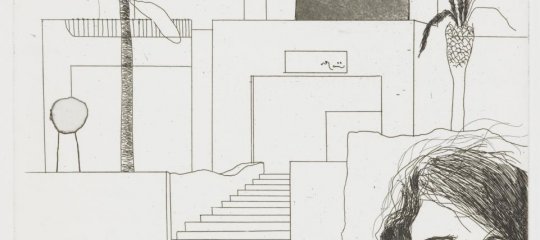ερωτηματολόγιο
errante writes, "Αυτό το ερωτηματολόγιο δόθηκε στους φοιτητές που παρακολουθούν το μάθημα των Νέων Ελληνικών στη Σχολή Διερμηνείας και Μετάφρασης, στη Γρανάδα.
Στέλνω, ακόμη, τις ερωτήσεις στα ελληνικά και τις απαντήσεις των φοιτητών"
Motivaciones: explicar brevemente las razones por las que ha elegido aprender el griego moderno.
¿Piensa continuar?
No
Sí, hasta el nivel básico.
Sí, hasta el nivel avanzado.
Sí, hasta el más alto nivel que pueda.
¿Porqué?.
¿Les gustaría que hubiera más o menos gramática, conversación, vocabulario cotidiano/culto/coloquial, elementos de la cultura contemporánea, elementos históricos en las clases de griego moderno?
Propuestas/sugerencias:
¿Tienen conocimientos de griego clásico?
Sí
No
En caso afirmativo ¿creen que les puede ser util?
Sí, ayuda mucho.
No ayuda.
Sí, ayuda algo.
Lleva a confusión.
ΑΠΑΝΤΗΣΕΙΣ ΣΤΟ ΕΡΩΤΗΜΑΤΟΛΟΓΙΟ
(Α΄ επίπεδο)
1η ερώτηση: Κίνητρα: να απαντήσετε σύντομα για ποιους λόγους επιλέξατε να μάθετε νέα ελληνικά.
Απάντηση: - πρόκληση νέας γλώσσας 4,2%
- περιέργεια 4,2%
- έχει λίγους η τάξη και η καθηγήτρια είναι Ελληνίδα 4,2%
- μιλιέται από λίγους /είναι πολύ λίγο συνηθισμένη 8,3%
- είναι γλώσσα εξωτική 8,3%
- μου αρέσουν οι ξένες γλώσσες 8,3%
- δίνει 6 μονάδες 8,3%
- φιλικές σχέσεις με Έλληνες /επιθυμία να πάει στην Ελλάδα: 25%
- μου αρέσει η γλώσσα (ήχος, ομοιότητες με ισπανική) 25%
- μου αρέσουν οι κλασικές σπουδές /έχω γνώσεις αρχαίων ελλ 45,8%
(Μερικοί, εννοείται, ανέφεραν δύο ή τρεις λόγους)
2η ερώτηση: Σκέφτεστε να συνεχίσετε;
Όχι 12,5%
Ναι, ως το βασικό επίπεδο 25%
Ναι, ως το επίπεδο των προχωρημένων 12,5%
Ναι, σε όσο ανώτερο επίπεδο γίνεται 42%
Δεν ξέρω 8%
Γιατί; * για το όχι: α) ωράριο κακό β) μπερδεύω τις ξένες γλώσσες
* για τα ναι: - περιέργεια 4,8%
- καμία απάντηση 9,5%
- για να πάρω τις μονάδες 9,5%
- για να αυξήσω τις γνώσεις μου 14,3%
- συνεχίζω ό,τι αρχίζω 14,3%
- θέλω να πάω στην Ελλάδα / να επικοινωνώ με έλληνες 14,3%
- μου αρέσει / είναι ενδιαφέρουσα γλώσσα 33,3%
3η ερώτηση: Θα θέλατε να περιλαμβάνει το μάθημα των νέων ελληνικών περισσότερη γραμματική, συζήτηση, λεξιλόγιο (καθημερινό / λόγιο /πολύ καθ……..,) στοιχεία του σύγχρονου πολιτισμού, στοιχεία ιστορίας;
- λιγότερη γραμματική 12,5%
- περισσότερο: γραμματική 12,5%
- εξάσκηση (γραμμ,και λεξιλ) 12,5%
- χρήση ισπανικής γλώσσας 16,7%
- συζήτηση 29,2%
- καθημερινό λεξιλόγιο 29,2%
- ιστορικά στοιχεία 33,3%
- στοιχεία σύγχρονου πολιτισμού 58,3%
4η ερώτηση: Προτάσεις / υποδείξεις:
- βιντεοταινίες υποτιτλισμένες (περιεχόμενο: ιστορικό, παραδόσεις, μνημεία ..) 12,5%
- μουσική 4,2%
- δουλειά σε ομάδες 4,2%
- μείωση ρυθμού του μαθήματος 4,2%
- καμία 74,9%
5η ερώτηση: Έχετε γνώσεις αρχαίων ελληνικών; Ναι: 79,2%%
Όχι: 20,8%
Σε περίπτωση θετικής απάντησης, πιστεύετε ότι σας βοήθησαν;
Ναι, πολύ 15,8 %
Ναι, λίγο 73,7%
Όχι 0 %
Προκαλούν σύγχυση 10,5%
ΑΠΑΝΤΗΣΕΙΣ ΣΤΟ ΕΡΩΤΗΜΑΤΟΛΟΓΙΟ
(Γ΄ επίπεδο)
1η ερώτηση: Κίνητρα: να απαντήσετε σύντομα για ποιους λόγους επιλέξατε να μάθετε νέα ελληνικά.
Απάντηση:
- για να ασχοληθώ επαγγελματικά με τη μετάφραση από ισπανικά σε Ελληνικά 33% - μου αρέσουν οι ξένες γλώσσες με αλφαβητικό σύστημα 33%
- στην αρχή από περιέργεια και μετά γιατί μου αρέσει πολύ η γλώσσα της χώρας
αυτής, ο πολιτισμός της και ο τρόπος ζωής των ανθρώπων.* 33%
2η ερώτηση: Σκέφτεστε να συνεχίσετε;
Όχι: 0%
Ναι, ως το βασικό επίπεδο: 0%
Ναι, ως το επίπεδο των προχωρημένων: 0%
Ναι, σε όσο ανώτερο επίπεδο γίνεται: 100%
Γιατί; - Για επαγγελματικούς λόγους 66%
- Γιατί μου αρέσει πολύ…. 33%
3η ερώτηση: Θα θέλατε να περιλαμβάνει το μάθημα των νέων ελληνικών περισσότερη γραμματική, συζήτηση, λεξιλόγιο (καθημερινό / λόγιο /πολύ καθ……..,) στοιχεία του σύγχρονου πολιτισμού, στοιχεία ιστορίας;
ιστορικά στοιχεία 33%
συζήτηση 100%
γραμματική (λίγο περισσότερη) 66%
στοιχεία πολιτισμού, κείμενα λογοτεχνικά και από τον τύπο (προσιτά όμως) 33%
4η ερώτηση: Προτάσεις / υποδείξεις:
μεγαλύτερη χρήση οπτικοακουστικών μέσων 66%
επεξεργασία κειμένων που προετοιμάζουν για τη δουλειά του μεταφραστή 33%
5η ερώτηση: Έχετε γνώσεις αρχαίων ελληνικών; Ναι: 100%
Όχι: 0%
Σε περίπτωση θετικής απάντησης, πιστεύετε ότι σας βοήθησαν;
Ναι, πολύ 0%
Ναι, λίγο 100%
Όχι 0%
Προκαλούν σύγχυση 0%
*Όποιος ή όποια και να έδωσε την απάντηση, πάντως την Ελλάδα δεν την έχει επισκεφτεί.
- Εισέλθετε στο σύστημα για να υποβάλετε σχόλια










